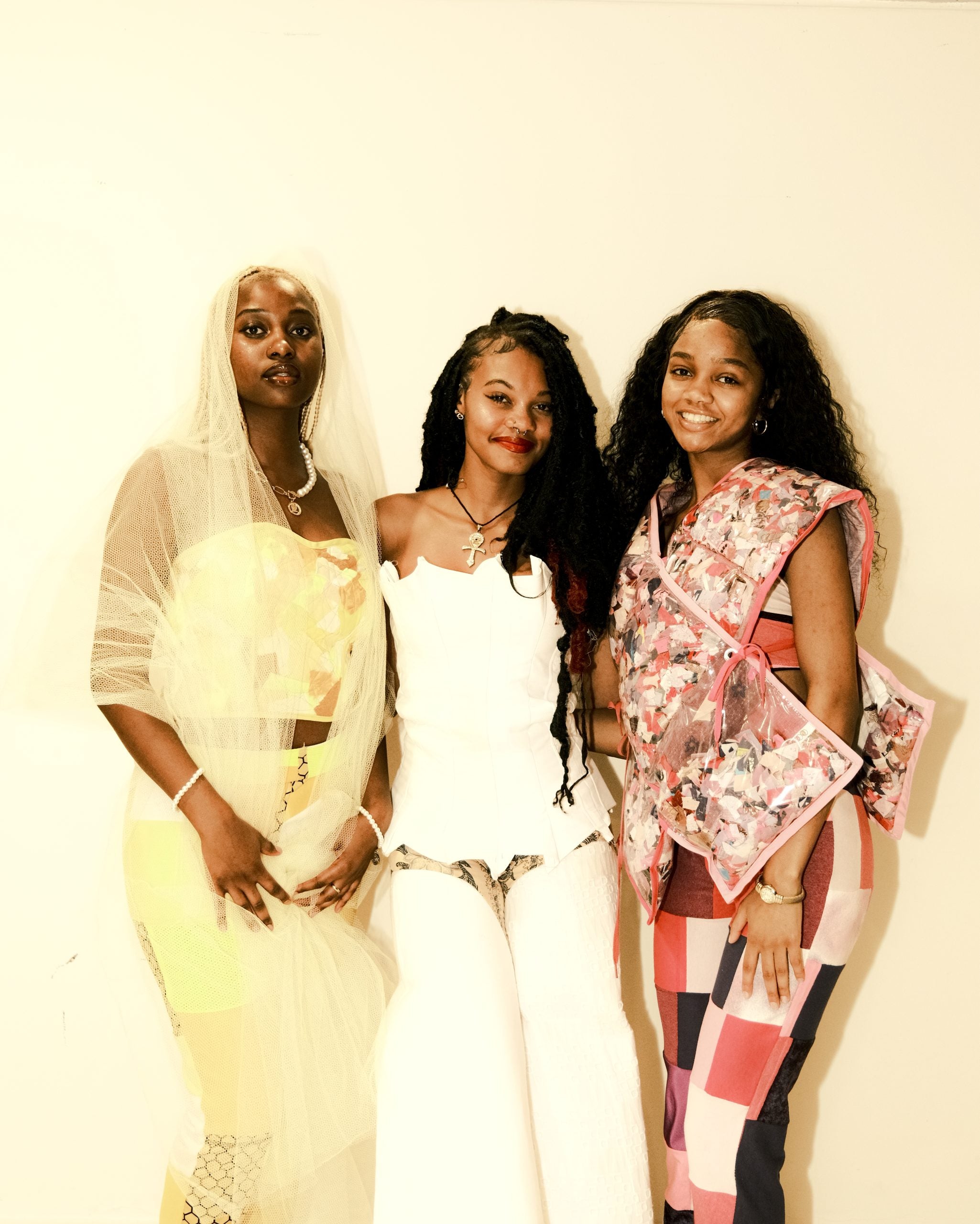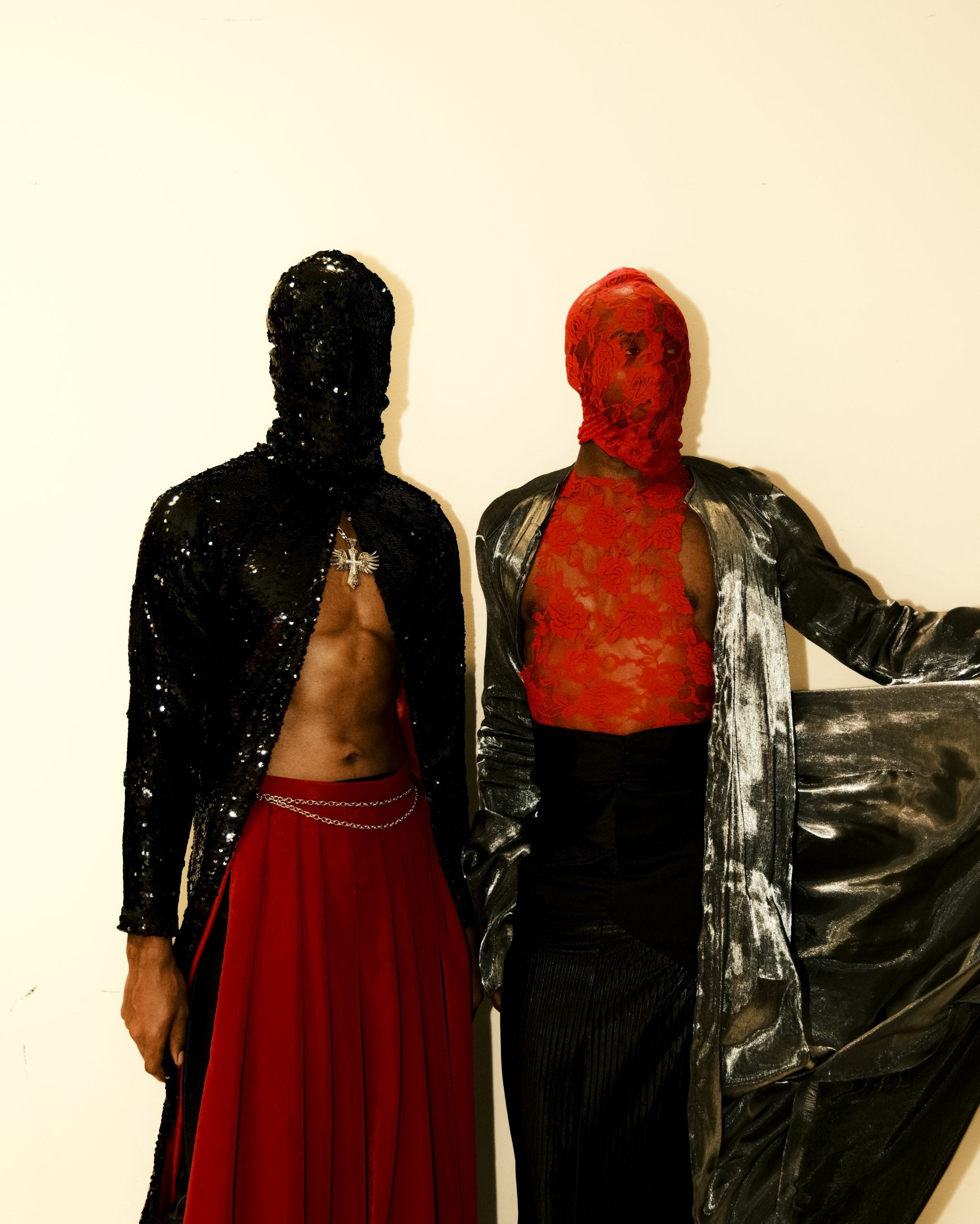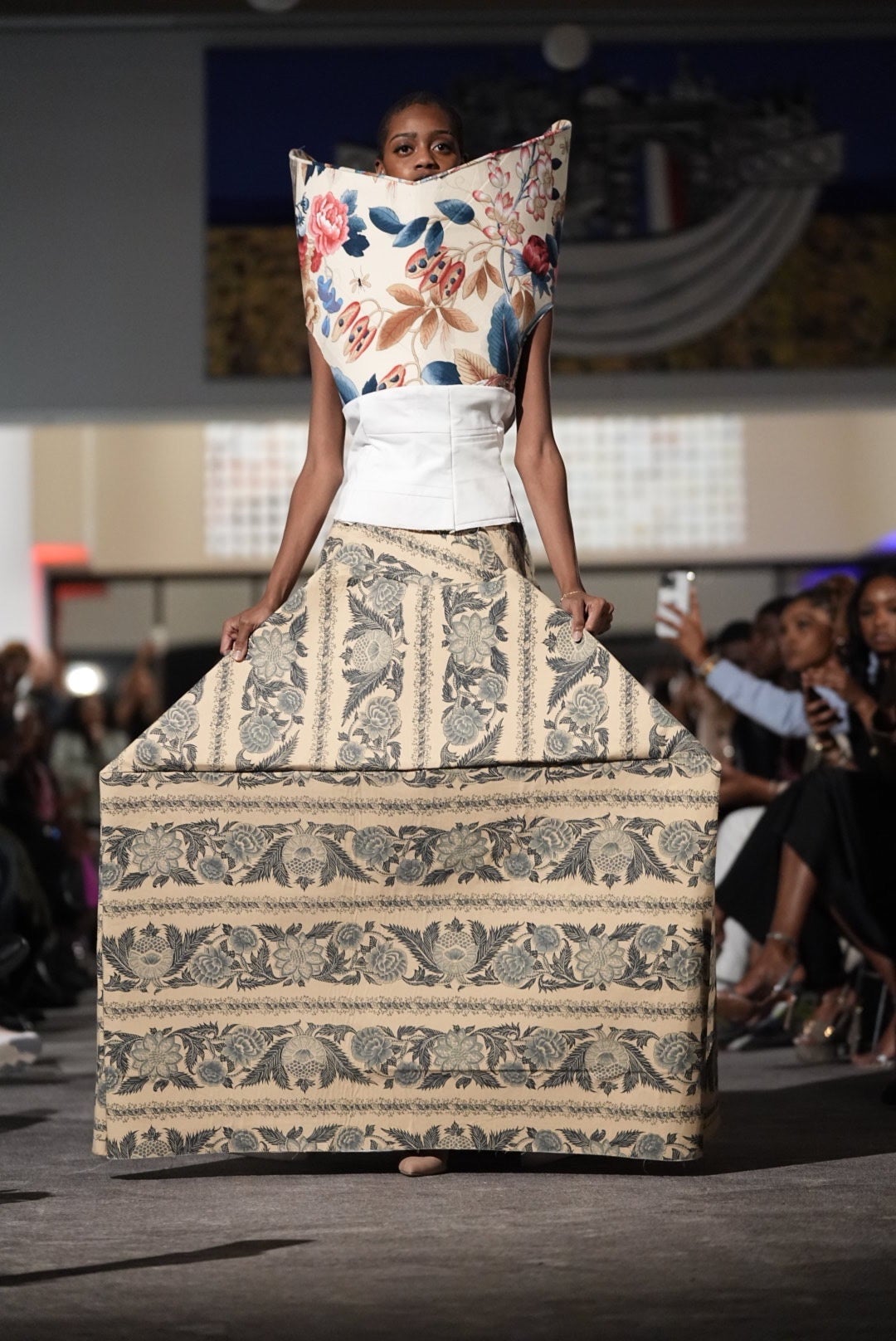
WASHINGTON, DC – On November 10, 2023, fashion enthusiasts and climate advocates gathered at La Maison Française, Embassy of France, to commemorate the 50th anniversary of the Battle of Versailles. Diverse sponsors, including NexTiles, The French Embassy, and HBCU Green Fund collaborated seamlessly to intersect style, sustainability, and social justice.
By spotlighting sustainable fashion as a potent instrument for addressing environmental issues, fostering diversity and inclusion, and encouraging innovation, the HBCU Sustainable Fashion Showcase harnessed the legacy of the Battle of Versailles with impeccable timing, aligning with this year’s United Nations Climate Change Conference (COP28).
Versailles Forward from 1973 to Beyond
Rewinding to November 28, 1973, the “Battle of Versailles” revolutionized the fashion industry by breaking down barriers and fostering diversity on the runway. This cultural earthquake featured five French couturiers and their invited American counterparts, setting a precedent for inclusivity in the fashion world and giving rise to the reign of Black models
Fast forward to 2023, and HBCUs are leveraging this momentum to promote sustainability in the fashion industry. With COP28 rapidly approaching, the panels brought together diverse speakers from the fashion and climate sectors to emphasize that sustainability is no longer a choice but a necessity.

Good Energy Forward with Environmental Justice
Madeline Walker Miller, a Ph.D. Candidate at the University of Michigan School for Environment and Sustainability, alumna of Spelman College, and Founder of NexTiles, explained, “The fashion industry has a lot of ground to cover in a small window,” says Miller. “The UN created a Fashion Charter for Climate Change in 2018 that seeks to achieve net zero emission by 2050 and outlines several other emissions-related goals. From the inside of this issue, and even from the perspective of representatives from the UN, we are behind.”
NexTiles, a Detroit-based textile recycling company founded by Miller, not only diverts textile waste from landfills but also contributes to the growth of the circular economy. This vision is firmly aligned with the United Nations Sustainable Development Goals (SDGs), showcasing the potential for sustainable solutions in the fashion industry.
Illai Kenney, Managing Director of HBCU Green Fund, a non-profit organization committed to advancing sustainability, resilience, and equity at HBCUs, emphasized the need for the fashion industry to redefine itself at the forefront of sustainable solutions. Kenney stated, “For much of the fashion industry, sustainability has traditionally taken a backseat to design, cost, quality, and other valid business concerns. However, sustainability must evolve into a fundamental and defining element of the fashion industry’s identity and core values.”
Kenney further highlighted the potential of the fashion industry to contribute to achieving UN sustainability goals by quantifying and minimizing its environmental impact, particularly in terms of energy and natural resource utilization. “The biggest contribution fashion industry experts can make is leveraging the influence and impact of their brand and work to encourage everyone to lead a more sustainable life,” said Kenney.

HBCU Sustainable Fashion Show
Sustainability in the fashion industry is not only essential but so is equity. In the context of the fashion industry, this means ensuring that talented individuals from diverse backgrounds, including historically underrepresented groups, have the same opportunities to succeed and thrive.
In the aftermath of the Black Lives Matter movement, the fashion industry is beginning to embrace change and inclusivity. Mikayla L. Morrison, Brand Partnerships Coordinator for Harlem’s Fashion Row (HFR) and proud Dillard University alumna, sees the industry evolving, providing incredible opportunities for HBCU students.
“I’m from a very rural town in Louisiana,” Morrison shared. “Coming from an HBCU, we all know that what you have on is so important but when I was at Dillard University, I never knew I could pursue fashion as a career. I didn’t think this industry was attainable to me also because it did not really look like me. But now, I can see the industry browning and I think it’s an incredible opportunity for HBCU students to be in the industry now because it did not always look like this.”
Nelson Elliot Gillum, Director of Brand Experience & Activation for Moët Hennessy’s Champagne & Sparkling under LVMH, credits social media for democratizing fashion and fostering inclusivity, and urges Black students to seize the opportunity.
“The traditional history of gate-keeping and the mystique of fashion is lifting,” says Gillum. “Fashion is so much more democratized. Social media has opened the door so that you get a true view into what these people do, what their careers are and what your pathway can be in the fashion industry.”
HBCUs play a pivotal role as exemplified by students from institutions such as Bowie State, Spelman College, Hampton University, Howard University, North Carolina Central, Virginia State and more who proudly showcased their sustainably crafted designs. By nurturing diverse talent and providing education and training in fashion-related fields, HBCUs empower students to pursue careers in the fashion industry, breaking down barriers and allowing them to be crucial participants in sustainability initiatives.
Tukii Tucker, first-place winner of the sustainable fashion event from North Carolina Central University said, “I wanted to ensure my collection was accessible yet still artistic. Being tasked with creating a collection that was both sustainable and inspired by the Baroque period was an exciting juxtaposition.”

HBCU students proudly presented their thoughtfully crafted designs, showcased their impressive artwork, and skillfully captured the essence of the evening with student photographers.
Lessons Learned and Future Directions
As we anticipate COP28 and its focus on climate action, let’s heed the lessons of the Battle of Versailles and the innovative spirit of NexTiles and HBCUs. Let’s support emerging talent from diverse backgrounds, engage with sustainable fashion initiatives, and strive for a more inclusive and eco-conscious future.
In the intersection of fashion, climate action, and inclusion, a brighter and more sustainable world awaits—where everyone has a seat at the table, and fashion paves the way to a greener future.
“It was a genius collaboration of thinking globally and acting locally and reminding people that sustainability has always been a part of the black DNA and celebrated by HBCUs Professor Maria Fenton, Dr. Marilyn Sephocle-Line, Dean Denise Saunders Thompson, Dr. Darlene Eberhardt and Professor Kari Fulton,” said Amal Marjani Bennett-Judge, executive producer of the event.